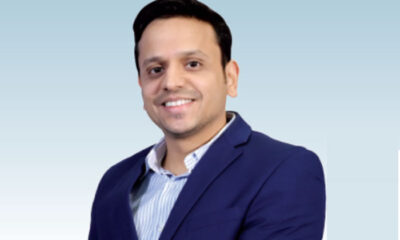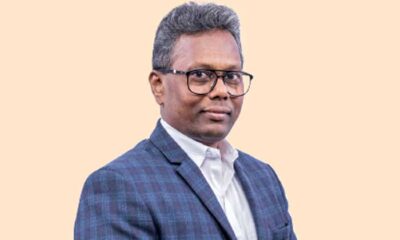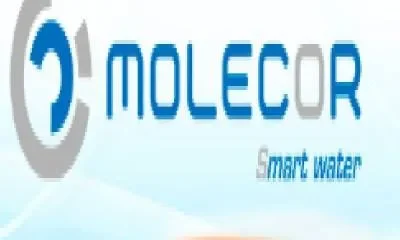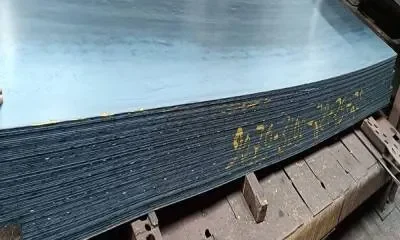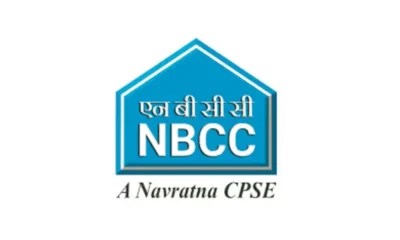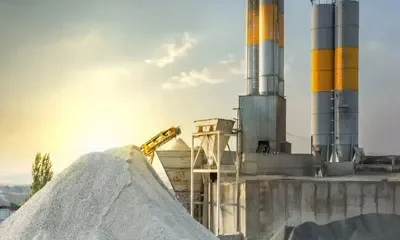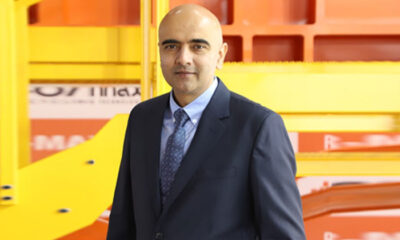Concrete
We prioritise long-term durability
Published
7 months agoon
By
admin
Dheepan Ramalingam, Managing Director, Ringfeder Power Transmission (I), on blending German precision with Indian scale to deliver durable, high-performance solutions.
From German engineering to Indian cement plants, Ringfeder has carved a niche as a force driving efficiency and innovation. In this exclusive interview, Dheepan Ramalingam, Managing Director, Ringfeder Power Transmission (I), explains how Ringfeder is
powering cement operations, embracing sustainability and integrating smart technology to stay ahead of the curve.
Can you tell us about your company and its role in the Indian cement industry?
Ringfeder is a 102-year-old German company, originally established in Düsseldorf. We have been doing business in India for the last 25 years, and as Ringfeder India, we have been operating for 16 years now. We are known as the inventors of locking devices and damping solutions. These products are manufactured in our European facilities and are imported from Germany for distribution across India.
Until last year, we operated with a team of around 20 people, primarily focused on importing and distributing these products. However, in a major development last year, we acquired an Indian company—Rathi Transpower Limited—which
has a manufacturing capacity supported by a workforce of 500 people, with plants located in Pune and Kolhapur.
Today, our combined strength is around 550 team members. We are deeply integrated into the Indian cement industry. From the transportation of raw materials like limestone, to grinding, separation, packaging, and even the logistics of cement bags, our products play a critical role. Essentially, we offer complete product solutions for the entire cement plant machinery setup. We are proud to say that we currently hold a 30 per cent to 40 per cent market share in India for our category.
How do your products enhance efficiency and precision in cement operations?
Our product portfolio mainly includes two core technologies: shaft locking devices and precision couplings.
Let’s start with the locking devices. These are used to secure a hollow shaft onto a solid shaft and are applied in critical machinery like pulverisers, kilns, and separators. Traditionally, keyways are used for this purpose, but our locking devices offer a superior alternative. One of their main advantages is ease of maintenance. In a cement plant, maintenance is frequent due to the harsh operational environment, and our devices make the assembly and disassembly process quick and seamless. This significantly reduces downtime.
The second product line includes precision couplings. These are essential consumables, but it’s important that they are both reliable and durable. Our couplings—whether produced in Germany or in India—are manufactured to strict German standards, ensuring top-tier performance. These products are built to last and perform consistently, even under demanding conditions.
How do you ensure product durability in high-impact cement environments?
The products we manufacture are primarily made from 42CrMo4 alloy steel, which is well-known for its strength and durability. This type of steel is highly resistant to corrosion and mechanical stress, which is essential in an environment like a cement plant.
We also advise our customers to use protective covers while the machines are operating to further reduce environmental wear and tear. As for material performance, the tensile strength of the steel we use is around 900 N/mm². In comparison, many competitor products fail at around 600 N/mm². This shows that we never compromise on material quality, even if it means our costs are higher. We prioritise long-term durability over short-term price reductions, and this approach has helped us build a strong reputation
for reliability.
How are you addressing sustainability in your operations and offerings?
Sustainability is at the heart of our business ethos. Ringfeder is part of the VBG Group, a Swedish conglomerate known for its commitment to sustainable practices. Sweden, as you may know, is one of the most sustainability-focused nations globally. In line with that, we have set up dedicated sustainability departments in every country where we operate, including India. Within our own operations, we are making several changes. This includes using sustainable materials in our packaging, optimising our logistics to reduce emissions, and guiding our suppliers toward more environmentally responsible practices. We are also tracking our carbon footprint closely and have made it a goal to reduce emissions significantly in the coming years.
When it comes to the cement industry, we contribute to sustainability by offering products that are durable, reduce maintenance frequency, and minimise energy losses—ultimately helping cement manufacturers operate more efficiently and with fewer interruptions.
Can you share a recent innovation and how technology is improving your products?
At Ringfeder, innovation is continuous. We have a dedicated R&D centre in Germany and an extended R&D arm in India. Our focus has always been on enhancing functionality, durability and efficiency. Over time, we have made several improvements in the materials used in our products, ensuring they meet the toughest industrial standards.
One of the most exciting developments is the integration of electronic feedback systems into our product lines. This represents a step toward smart technology, where products can provide real-time performance data. We are currently working on embedding sensors and feedback modules into our systems, which can give users predictive insights and maintenance alerts. This will not only improve performance but also help reduce unplanned downtime—an important factor in industries like cement.
What are some challenges you face in the cement industry?
There are a few challenges that are quite specific to our line of business. First, our products fall into the category of capital equipment, which means the procurement cycles are longer and highly dependent on capex planning by cement companies. These purchases are not linear—they tend to follow the cyclic nature of the industry.
For instance, this year we saw a slowdown, primarily due to the uncertainty and cautious spending that comes with general elections. However, based on the current pipeline of cement plant expansions, we are optimistic that 2025 will be a great year—not just for Ringfeder, but for the entire cement sector.
To counterbalance the cyclic nature of cement, we also serve other industries such as textiles, bulk material handling and hydropower. This diversification helps us manage business continuity more effectively.
What is your view on Net Zero and your alignment with global goals?
Yes, this is a very important area for us. Ringfeder and our parent company, the VBG Group, are actively aligned with the United Nations’ Sustainable Development Goals (SDGs). We’ve identified five key SDGs where we focus our efforts: reducing emissions, promoting gender equality, improving access to education, encouraging responsible consumption, and fostering decent work environments.
We believe that companies have a responsibility not only to their customers but also to society at large. Our sustainability team regularly evaluates our progress in these areas and works closely with local and global stakeholders. Our goal is to ensure that by 2030, we are not just meeting industry standards but are seen as leaders in sustainability and ethical operations.
Concrete
FORNNAX Appoints Dieter Jerschl as Sales Partner for Central Europe
Published
2 weeks agoon
February 5, 2026By
admin
FORNNAX TECHNOLOGY has appointed industry veteran Dieter Jerschl as its new sales partner in Germany to strengthen its presence across Central Europe. The partnership aims to accelerate the adoption of FORNNAX’s high-capacity, sustainable recycling solutions while building long-term regional capabilities.
FORNNAX TECHNOLOGY, one of the leading advanced recycling equipment manufacturers, has announced the appointment of a new sales partner in Germany as part of its strategic expansion into Central Europe. The company has entered into a collaborative agreement with Mr. Dieter Jerschl, a seasoned industry professional with over 20 years of experience in the shredding and recycling sector, to represent and promote FORNNAX’s solutions across key European markets.
Mr. Jerschl brings extensive expertise from his work with renowned companies such as BHS, Eldan, Vecoplan, and others. Over the course of his career, he has successfully led the deployment of both single machines and complete turnkey installations for a wide range of applications, including tyre recycling, cable recycling, municipal solid waste, e-waste, and industrial waste processing.
Speaking about the partnership, Mr. Jerschl said,
“I’ve known FORNNAX for over a decade and have followed their growth closely. What attracted me to this collaboration is their state-of-the-art & high-capacity technology, it is powerful, sustainable, and economically viable. There is great potential to introduce FORNNAX’s innovative systems to more markets across Europe, and I am excited to be part of that journey.”
The partnership will primarily focus on Central Europe, including Germany, Austria, and neighbouring countries, with the flexibility to extend the geographical scope based on project requirements and mutual agreement. The collaboration is structured to evolve over time, with performance-driven expansion and ongoing strategic discussions with FORNNAX’s management. The immediate priority is to build a strong project pipeline and enhance FORNNAX’s brand presence across the region.
FORNNAX’s portfolio of high-performance shredding and pre-processing solutions is well aligned with Europe’s growing demand for sustainable and efficient waste treatment technologies. By partnering with Mr. Jerschl—who brings deep market insight and established industry relationships—FORNNAX aims to accelerate adoption of its solutions and participate in upcoming recycling projects across the region.
As part of the partnership, Mr. Jerschl will also deliver value-added services, including equipment installation, maintenance, and spare parts support through a dedicated technical team. This local service capability is expected to ensure faster project execution, minimise downtime, and enhance overall customer experience.
Commenting on the long-term vision, Mr. Jerschl added,
“We are committed to increasing market awareness and establishing new reference projects across the region. My goal is not only to generate business but to lay the foundation for long-term growth. Ideally, we aim to establish a dedicated FORNNAX legal entity or operational site in Germany over the next five to ten years.”
For FORNNAX, this partnership aligns closely with its global strategy of expanding into key markets through strong regional representation. The company believes that local partnerships are critical for navigating complex market dynamics and delivering solutions tailored to region-specific waste management challenges.
“We see tremendous potential in the Central European market,” said Mr. Jignesh Kundaria, Director and CEO of FORNNAX.
“Partnering with someone as experienced and well-established as Mr. Jerschl gives us a strong foothold and allows us to better serve our customers. This marks a major milestone in our efforts to promote reliable, efficient and future-ready recycling solutions globally,” he added.
This collaboration further strengthens FORNNAX’s commitment to environmental stewardship, innovation, and sustainable waste management, supporting the transition toward a greener and more circular future.
Concrete
Budget 2026–27 infra thrust and CCUS outlay to lift cement sector outlook
Published
2 weeks agoon
February 2, 2026By
admin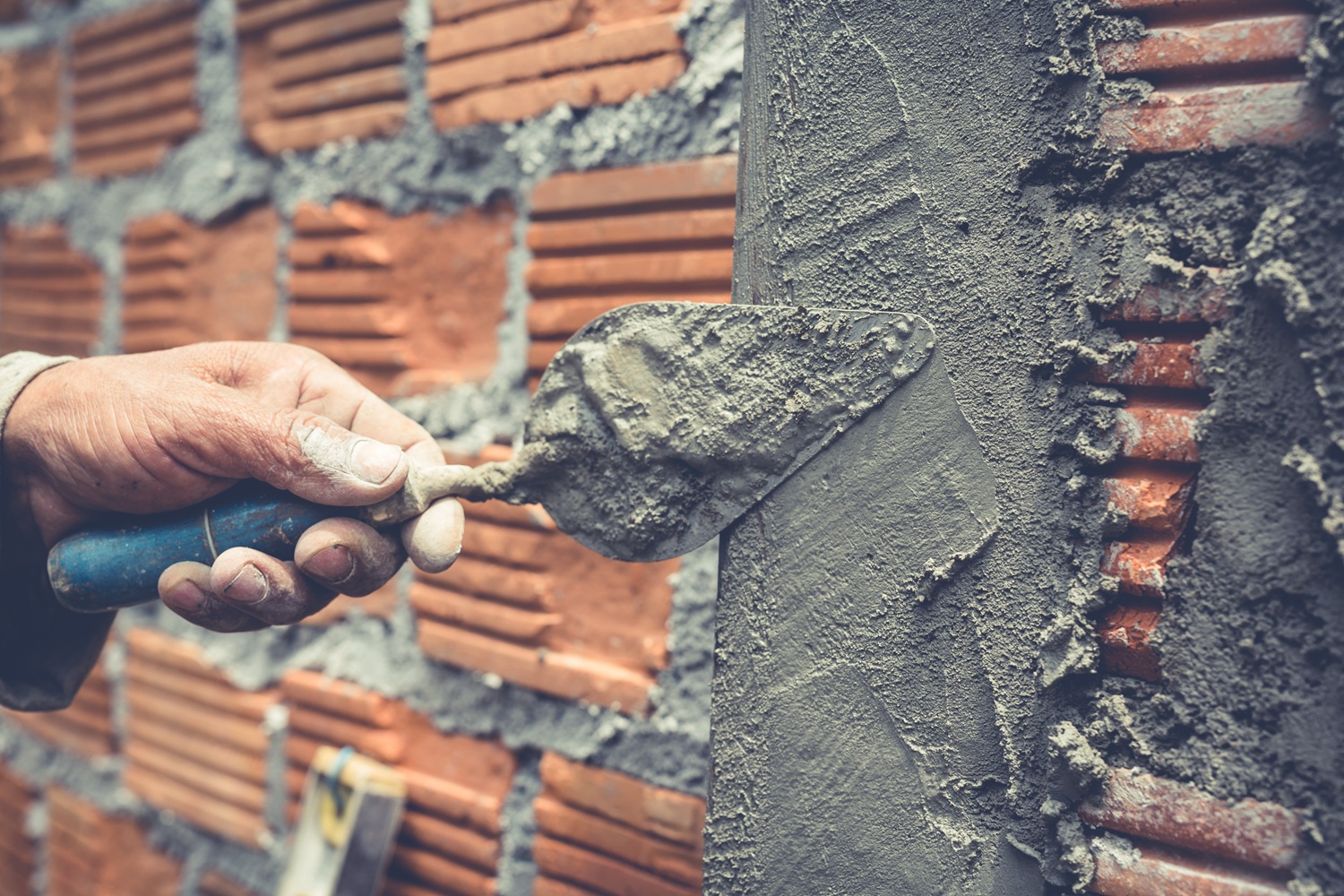
Higher capex, city-led growth and CCUS funding improve demand visibility and decarbonisation prospects for cement
Mumbai
Cement manufacturers have welcomed the Union Budget 2026–27’s strong infrastructure thrust, with public capital expenditure increased to Rs 12.2 trillion, saying it reinforces infrastructure as the central engine of economic growth and strengthens medium-term prospects for the cement sector. In a statement, the Cement Manufacturers’ Association (CMA) has welcomed the Union budget 2026-27 for reinforcing the ambitions for the nation’s growth balancing the aspirations of the people through inclusivity inspired by the vision of Narendra Modi, Prime Minister of India, for a Viksit Bharat by 2047 and Atmanirbharta.
The budget underscores India’s steady economic trajectory over the past 12 years, marked by fiscal discipline, sustained growth and moderate inflation, and offers strong demand visibility for infrastructure linked sectors such as cement.
The Budget’s strong infrastructure push, with public capital expenditure rising from Rs 11.2 trillion in fiscal year 2025–26 to Rs 12.2 trillion in fiscal year 2026–27, recognises infrastructure as the primary anchor for economic growth creating positive prospects for the Indian cement industry and improving long term visibility for the cement sector. The emphasis on Tier 2 and Tier 3 cities with populations above 5 lakh and the creation of City Economic Regions (CERs) with an allocation of Rs 50 billion per CER over five years, should accelerate construction activity across housing, transport and urban services, supporting broad based cement consumption.
Logistics and connectivity measures announced in the budget are particularly significant for the cement industry. The announcement of new dedicated freight corridors, the operationalisation of 20 additional National Waterways over the next five years, the launch of the Coastal Cargo Promotion Scheme to raise the modal share of waterways and coastal shipping from 6 per cent to 12 per cent by 2047, and the development of ship repair ecosystems should enhance multimodal freight efficiency, reduce logistics costs and improve the sector’s carbon footprint. The announcement of seven high speed rail corridors as growth corridors can be expected to further stimulate regional development and construction demand.
Commenting on the budget, Parth Jindal, President, Cement Manufacturers’ Association (CMA), said, “As India advances towards a Viksit Bharat, the three kartavya articulated in the Union Budget provide a clear context for the Nation’s growth and aspirations, combining economic momentum with capacity building and inclusive progress. The Cement Manufacturers’ Association (CMA) appreciates the Union Budget 2026-27 for the continued emphasis on manufacturing competitiveness, urban development and infrastructure modernisation, supported by over 350 reforms spanning GST simplification, labour codes, quality control rationalisation and coordinated deregulation with States. These reforms, alongside the Budget’s focus on Youth Power and domestic manufacturing capacity under Atmanirbharta, stand to strengthen the investment environment for capital intensive sectors such as Cement. The Union Budget 2026-27 reflects the Government’s focus on infrastructure led development emerging as a structural pillar of India’s growth strategy.”
He added, “The Rs 200 billion CCUS outlay for various sectors, including Cement, fundamentally alters the decarbonisation landscape for India’s emissions intensive industries. CCUS is a significant enabler for large scale decarbonisation of industries such as Cement and this intervention directly addresses the technology and cost requirements of the Cement sector in context. The Cement Industry, fully aligned with the Government of India’s Net Zero commitment by 2070, views this support as critical to enabling the adoption and scale up of CCUS technologies while continuing to meet the Country’s long term infrastructure needs.”
Dr Raghavpat Singhania, Vice President, CMA, said, “The government’s sustained infrastructure push supports employment, regional development and stronger local supply chains. Cement manufacturing clusters act as economic anchors across regions, generating livelihoods in construction, logistics and allied sectors. The budget’s focus on inclusive growth, execution and system level enablers creates a supportive environment for responsible and efficient expansion offering opportunities for economic growth and lending momentum to the cement sector. The increase in public capex to Rs 12.2 trillion, the focus on Tier 2 and Tier 3 cities, and the creation of City Economic Regions stand to strengthen the growth of the cement sector. We welcome the budget’s emphasis on tourism, cultural and social infrastructure, which should broaden construction activity across regions. Investments in tourism facilities, heritage and Buddhist circuits, regional connectivity in Purvodaya and North Eastern States, and the strengthening of emergency and trauma care infrastructure in district hospitals reinforce the cement sector’s role in enabling inclusive growth.”
CMA also noted the Government’s continued commitment to fiscal discipline, with the fiscal deficit estimated at 4.3 per cent of GDP in FY27, reinforcing macroeconomic stability and investor confidence.
Concrete
Steel: Shielded or Strengthened?
CW explores the impact of pro-steel policies on construction and infrastructure and identifies gaps that need to be addressed.
Published
2 weeks agoon
January 31, 2026By
admin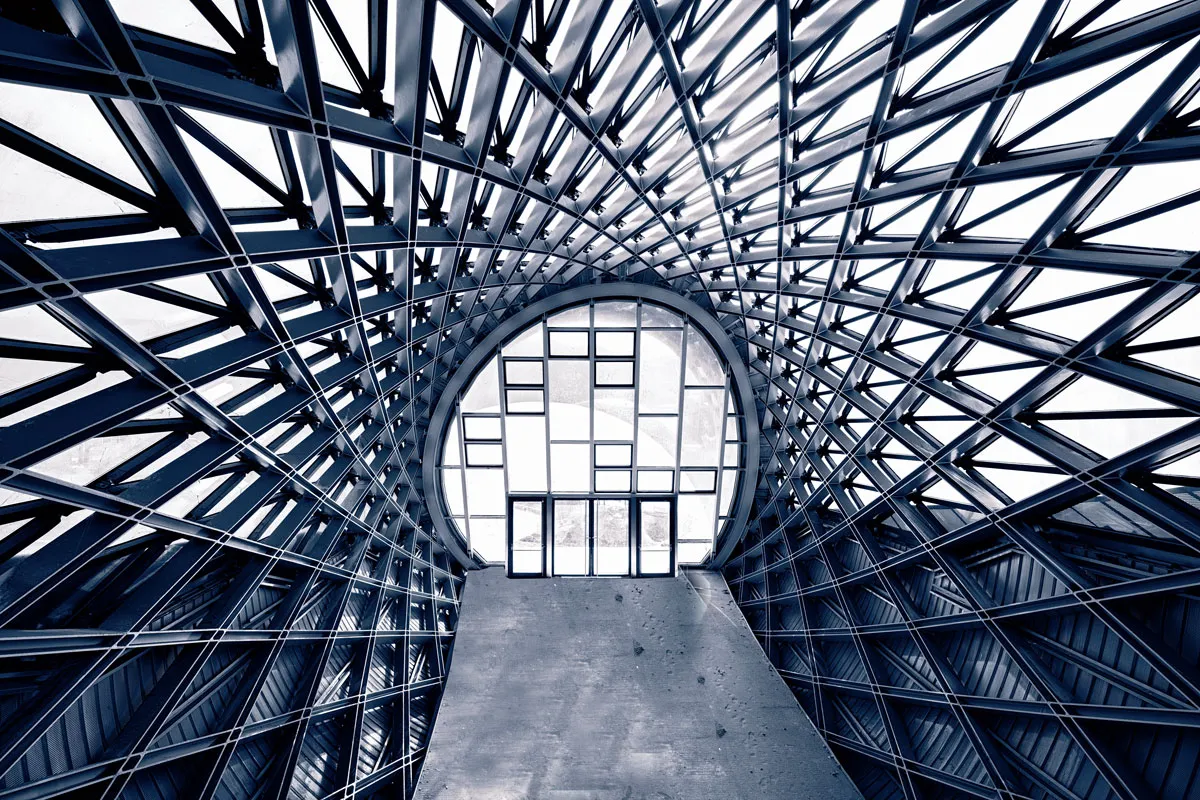
Going forward, domestic steel mills are targeting capacity expansion
of nearly 40 per cent through till FY31, adding 80-85 mt, translating
into an investment pipeline of $ 45-50 billion. So, Jhunjhunwala points
out that continuing the safeguard duty will be vital to prevent a surge
in imports and protect domestic prices from external shocks. While in
FY26, the industry operating profit per tonne is expected to hold at
around $ 108, similar to last year, the industry’s earnings must
meaningfully improve from hereon to sustain large-scale investments.
Else, domestic mills could experience a significant spike in industry
leverage levels over the medium term, increasing their vulnerability to
external macroeconomic shocks.(~$ 60/tonne) over the past one month,
compressing the import parity discount to ~$ 23-25/tonne from previous
highs of ~$ 70-90/tonne, adds Jhunjhunwala. With this, he says, “the
industry can expect high resistance to further steel price increases.”
Domestic HRC prices have increased by ~Rs 5,000/tonne
“Aggressive
capacity additions (~15 mt commissioned in FY25, with 5 mt more by
FY26) have created a supply overhang, temporarily outpacing demand
growth of ~11-12 mt,” he says…

FORNNAX Appoints Dieter Jerschl as Sales Partner for Central Europe

Budget 2026–27 infra thrust and CCUS outlay to lift cement sector outlook

Steel: Shielded or Strengthened?

JK Cement Commissions 3 MTPA Buxar Plant, Crosses 31 MTPA

JK Cement Crosses 31 MTPA Capacity with Commissioning of Buxar Plant in Bihar

FORNNAX Appoints Dieter Jerschl as Sales Partner for Central Europe

Budget 2026–27 infra thrust and CCUS outlay to lift cement sector outlook

Steel: Shielded or Strengthened?

JK Cement Commissions 3 MTPA Buxar Plant, Crosses 31 MTPA






